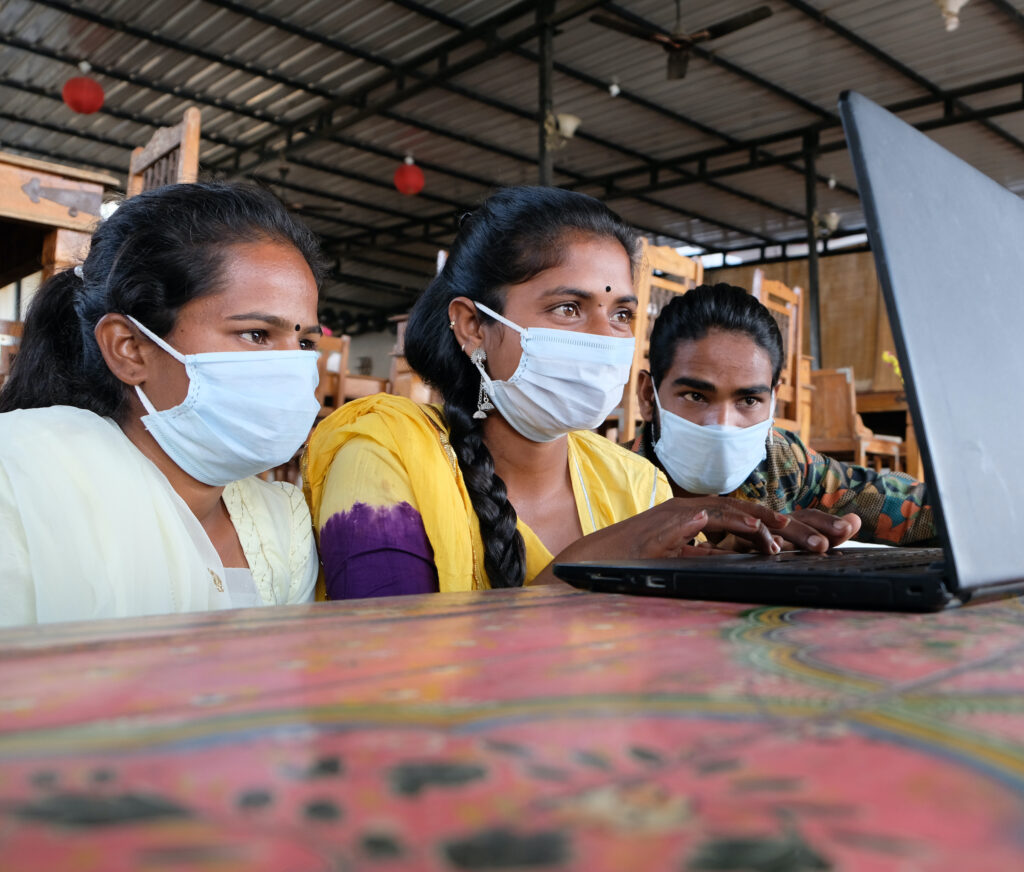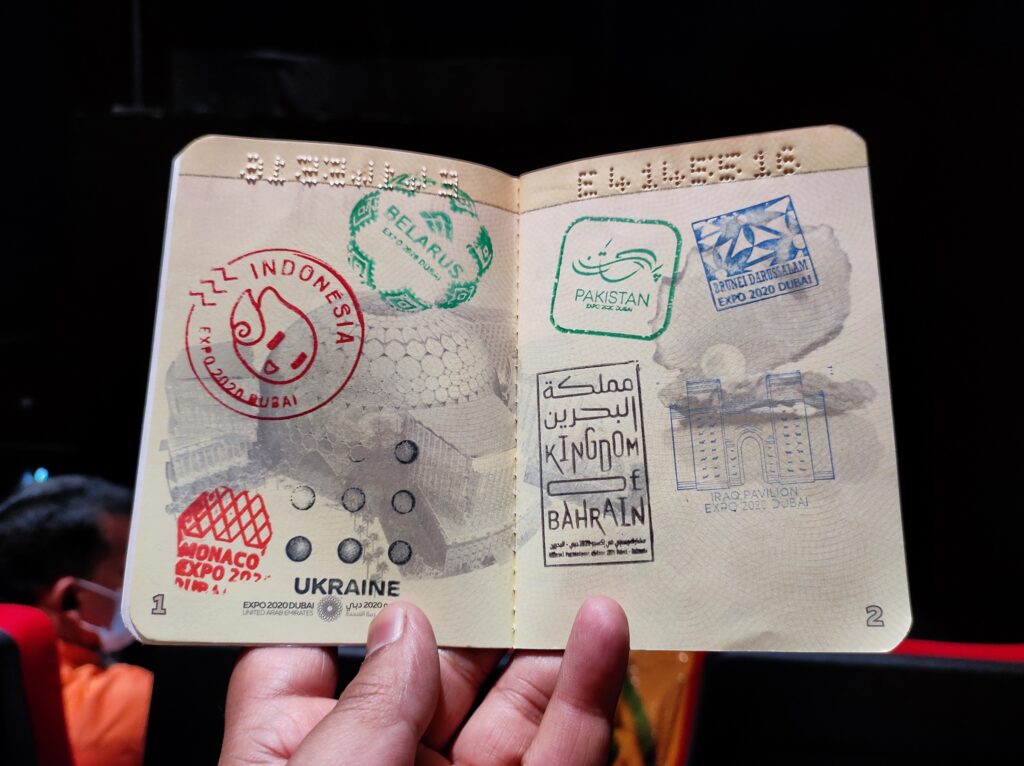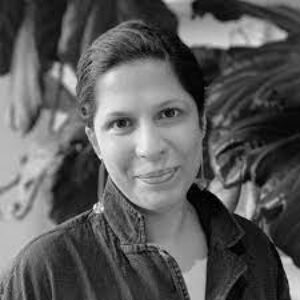Tech, Power, and Inequality in a Global Context: An Interview with Sareeta Amrute
Tech, Power, and Inequality in a Global Context: An Interview with Sareeta Amrute
As part of our “What Is Just Tech?” series, we invited several social researchers—scholars, practitioners, artists, and activists—to respond to a simple yet fundamental question: “What is just technology?” This interview was conducted by Just Tech Program Director Catalina Vallejo, who spoke with Sareeta Amrute, an anthropologist who studies race, labor, and class in global tech economies.
Sareeta Amrute is an affiliate associate professor of anthropology at the University of Washington and principal researcher at the Data & Society Research Institute. She also served on the Steering Committee that informed the creation of the Just Tech Fellowship and the 2020–2021 Just Tech Planning Committee. Amrute is the author of Encoding Race, Encoding Class: Indian IT Workers in Berlin (Duke University Press, 2016).
In their conversation, Vallejo and Amrute spoke about technology, power, and inequality in a global context.
Catalina Vallejo (CV): You are an anthropologist, a professor, and a researcher at Data and Society, which is not something that many academics do. We would love to hear more about your background and trajectory.
Sareeta Amrute (SA): I need to answer this question in two ways. One, which is personal, and the other, which is more about a professional trajectory. Professionally, in college, I was an art history major, and it was wonderful. Still, one thing that bothered me was that you mostly spent time learning about specific Western artists. You did not learn much about the social context in which they were painting.
That is when I started looking at this discipline that, like many kids, I had never heard of before college, called anthropology. I found in anthropology a deep drive to understand the context of art production. One of the first moments I thought about this was when I read The Dark Side of the Landscape by John Barrell. The point of this book was to say that in the bucolic landscapes of the British countryside, the painters were painting out the signs of industrial production. At this time, workers were being pushed off their lands and becoming proletariat because they had nothing left to sell except their labor, and all of this was being painted out of the landscape.
I decided then to go to graduate school. And there were a couple of authors that spoke to me. Reading them, I thought something is coming together here, where political economy, people’s history, and technology objects can all occupy the same conceptual universe to explain why things are the way they are.
Long story short, I love to teach, but once I got tenure, a part of me wanted to see how we could reach other kinds of audiences. That is what Data and Society offers me. It is an amazing institution that brings together interdisciplinary, scholarly work and an interest in what the journalistic discourse is on a topic.

CV: What about the more personal answer to why you have followed this trajectory?
SA: I think underneath all my work, there are the fundamental questions of why the world has been arranged the way it is. Why do power relationships look like they do? And what are the alternatives?
There are lots of narratives I could talk about, but one is my relationship with my maternal grandmother, whom I grew up with. She and my grandfather were extremely interesting and unusual people because they grew up in India before independence, and they were critical of both the British and Brahman orthodoxy. My grandmother was widowed at 16, and she usually would not have remarried, but her parents thought that was a terrible way for a woman to live. So, she went to school and remarried. Then, she and my grandfather came to the United States before the big wave of migration.
When I think about the touchstones for my research questions, politics, and ethics, I think it comes back to those formative years I spent with my grandmother. It is not as if we were talking politics when I was seven, but how she moved through the world thinking about how limiting social norms are.
CV: You grew up in New York, and your family came from India, but your research relates to Europe and has a significant global component. Can you tell us more about your research?
SA: I think the underlying emphasis and direction in my work is to think about the uneven geography of the world, regardless of the context in which the research is taking place. If I had to locate my work, it would be about the long history of the South Asian diaspora.
Part of what I want to do in my work is to recollect the lives of people who have lived outside the punitive boundaries to which they have been assigned. Often, those are boundaries of the nation-state. Some of my work with the South Asian diaspora occurs in Berlin, Germany, and some in Seattle. This shows how people move all the time.
In my current work, I look at people located in very different places but who communicate through encrypted technologies. The study of diaspora is taking on a new resonance because diaspora often means coming from somewhere else to the United States, which is a very limiting optic. Now I am looking at people living in South Africa, Australia, the United States, Canada, England, Middle Europe, and Singapore, all communicating through a single platform.
Another particularity of my work is its focus on the majority world or the Global South. The term Global South is problematic because it assumes a center-periphery relationship that needs to be undone, so maybe it is better to say, “majority world.” This is key to undoing the sense that all that is happening in the “majority world” is harm and thinking more about what kinds of innovations and alternatives are happening there.
“We need to think beyond just including to reflect on hierarchies, stratification, modes of inclusion, and predatory inclusion. The way that capital itself subjects populations to experiment with its new technologies.”
CV: In your work, you talk about “global tech economies,” can you tell us more about what you think people in the United States do not understand about technology, power, and inequality in a global context?
SA: My approach to this question is through the framework of racial capitalism. It is the most helpful framework because it moves us away from imagining that the only problem we have with technology and power is the problem of inclusion.
This is what people need to understand, especially in the United States, because our knee-jerk reaction is to say, “oh well, if we just provide access,” or “if we just include people in decision-making about technology, the problems will be solved.” I’m not against access. But the framework of racial capitalism ties together these three themes of the construction of race, the elaboration of technologies, and capitalist structures of accumulation and tells me that inclusion is not enough.
We have to get to a place where we can understand the terms of inclusion. How are different groups being included? What does that mean? What does that inclusion imply? What are they being included in? And in what ways is that inclusion also extractive, or producing forms of bias, or producing forms of thinking and classification that limit the ways we can be in the world rather than expanding them.
We need to think beyond just including to reflect on hierarchies, stratification, modes of inclusion, and predatory inclusion. The way that capital itself subjects populations to experiment with its new technologies. Governments are sold technologies that do not do what they say they are going to do, and they spend tons of money on them. And it turns out that they do not work, work poorly, or make problems even worse.

CV: In your work, you talk extensively about resistance. What are some reasons to be optimistic about the possibilities for tech justice?
SA: In my current project, I am looking at how activists communicate online. What I have been finding is that activists share sentiments. We always think about sentiment as linked to questions about media manipulation. But that is not what I am talking about. I am talking about how to be in a democratic activist space or movement also means that you need to be able to shift your perception of the world about what is normal and what should be expected. And a lot of that happens online by telling stories, sharing songs, bearing witness, and thinking through what we want the world to look like in the future.
The hope is really in those spaces where people are managing. Everyone knows that social media platforms are not very good at protecting people. They know there is harassment and surveillance and that social media companies often cooperate with governments. Yet still, despite all those restraints on their ability to think and act, they are using those spaces to create a vision of what the world could be.
The other side of that is a growing sense among the people I am working with that community-based cybersecurity is critical. The internet will only work the way we want it to, even if imperfectly. If you have a reasonable chance of being there, and not being, let’s say, sexually harassed. Or you have a reasonable chance of being there and establishing a different kind of relationship with the land. That is not the same old colonial property relationships that we have seen a million times. So, creating those alternative perceptions is where I think the hope is, and it is happening, but we are probably not paying enough attention.
CV: Whose work should we be following in the space of social justice and technology?
SA: I will name three people who do different work, but they are all amazing. Max Liboiron has a new book called Pollution is Colonialism. Murali Shanmugavelan is doing fantastic research on caste and communications. And Sa Whitley does excellent research on movements among the Black community to increase Black homeownership in Baltimore.
